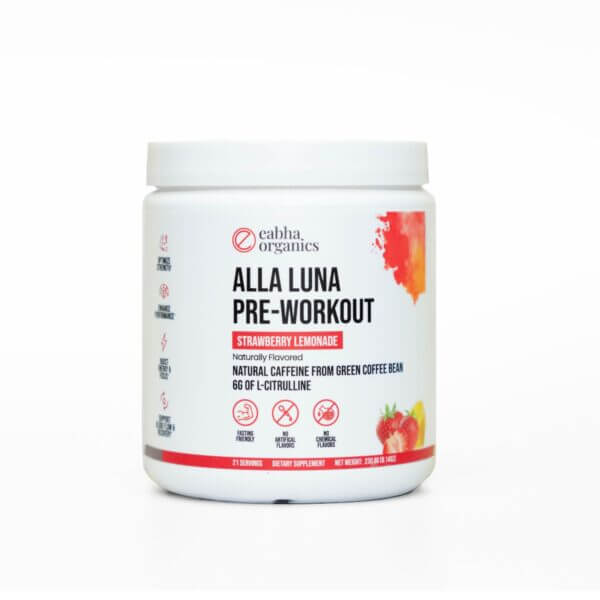5 Signs You Might Be Low in Magnesium (And What To Do About It)
Most people have heard of magnesium, but few realize just how important it really is. It’s not just a “bonus” mineral—it’s involved in over 300 biochemical reactions in your body. From your muscles to your hormones, magnesium plays a crucial role in keeping things running smoothly.
But here’s the thing: a surprising number of people are walking around with magnesium deficiency symptoms and don’t even know it.
Let’s break it all down—what magnesium does, how to tell if you’re low, and how to get more of it through food and supplementation.
Why Magnesium Is So Important
Magnesium is an essential mineral that supports:
- Muscle function
- Nerve communication
- Energy product
- Sleep quality
- Hormone balance
- Stress response
Basically, it’s a cornerstone for your overall health.
But here’s the kicker: many people don’t get enough. According to the National Institutes of Health, about 48% of Americans consume less magnesium than they should each day. And when your body runs low, it starts giving warning signs—until those signs become full-blown symptoms.
Top 5 Magnesium Deficiency Symptoms
Here are the most common signs you might be low in magnesium—and what they could be telling you.
1. Muscle Cramps or Twitching
If you’ve ever had a sudden charley horse in your calf or random eyelid twitching, low magnesium could be behind it. Magnesium helps your muscles contract and relax properly. When you don’t have enough, muscles can spasm or cramp.
This is especially true for athletes or anyone who sweats a lot—because magnesium is lost through sweat.
Quick tip: If you’re cramping a lot during workouts or at night, it’s worth looking at your magnesium intake.
2. Fatigue and Weakness
Magnesium is required to create ATP—your body’s energy molecule. Without enough magnesium, your body literally can’t produce energy efficiently. That can leave you feeling tired, drained, or physically weak even if you’re getting enough sleep.
3. Poor Sleep or Restless Nights
Struggling to stay asleep? Can’t seem to wind down at night? Magnesium helps regulate neurotransmitters like GABA, which calms your nervous system and promotes better sleep. When you’re low, your sleep can be light, interrupted, or just not restorative. This is one reason we included 150 mg of magnesium bisglycinate in our Total Balance supplement — it’s a highly absorbable form that’s gentle on the stomach and promotes calm without grogginess.
4. Hormonal Imbalance or PMS
Low magnesium levels can worsen hormonal symptoms in both men and women. For women, this often shows up as increased PMS symptoms like mood swings, cramps, or bloating. In men, it can affect testosterone levels and stress hormones like cortisol.
5. Increased Stress or Anxiety
Magnesium is often referred to as the “relaxation mineral” because of its calming effects on the nervous system. A deficiency can make it harder to manage stress, feel calm, or even stay emotionally balanced.
Some researchers suggest magnesium may help with symptoms of mild anxiety and improve resilience to stress.
What Causes Low Magnesium
Several lifestyle and diet factors can drain your magnesium:
- High stress
- Too much alcohol
- Medications like PPIs or diuretics
- Heavy sweating from intense workouts
- Poor gut absorption
Even if you’re eating “healthy,” certain habits and stressors can interfere with absorption or increase your body’s demand for magnesium.
How to Get More Magnesium (Naturally)
You can start with nutrition, here’s some magnesium-rich options:
- Pumpkin seeds
- Spinach
- Dark chocolate
- Black beans
- Red Meat
But here’s the truth: even if you eat well, it can still be hard to get enough magnesium from diet alone. Soil depletion and modern farming practices have reduced the mineral content of many foods.
That’s where a high-quality supplement can help.
Our Total Balance formula includes 150 mg of magnesium bis-glycinate, one of the most absorbable and gentle forms available—without the laxative effects of cheaper alternatives.
How Much Magnesium Should You Take?
The recommended daily intake varies based on age and gender:
| Group |
Daily Magnesium (mg) |
| Adult Men |
400–420 mg |
| Adult Women |
310–320 mg |
| Pregnant Women |
~360–400 mg |
| Athletes |
May require more due to loss through sweat |
Magnesium bisglycinate is an excellent choice because it’s chelated (bound to amino acids), making it easier for your body to absorb. It’s also less likely to cause digestive issues.
Always consult with your healthcare provider if you’re on medications or have a health condition—but for most people, 150–300 mg daily from food and supplements is a safe and effective range.
Final Thoughts
If you’re feeling tired, crampy, stressed, or just a little off, magnesium deficiency symptoms could be the missing piece. The good news? It’s easy to correct with a few dietary upgrades and a quality supplement.
Whether you’re training hard, managing stress, or just trying to sleep better—getting enough magnesium can be a game-changer.
✅ Key Takeaways
- Magnesium affects energy, sleep, muscle function, hormones, and mood
- Over 40% of adults may be deficient
- Symptoms include cramps, fatigue, poor sleep, stress, and hormonal issues
- Food is a great start, but a good supplement like Total Balance fills the gaps
- Aim for 300–400 mg daily from food + supplements combined
Talk soon,
Eabha Organics 🌿









